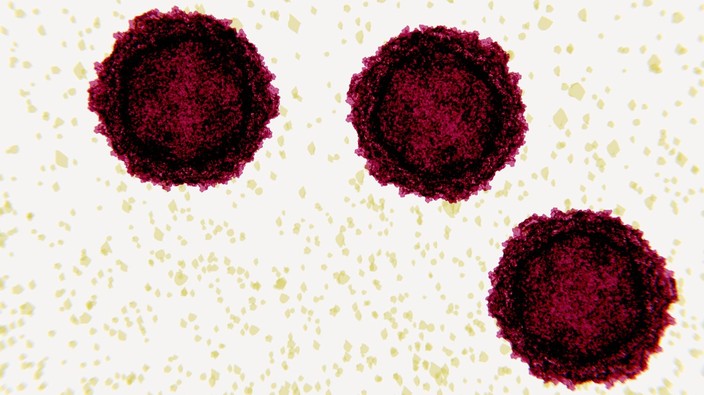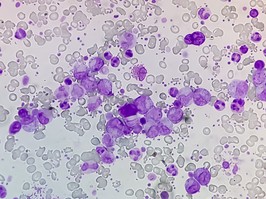virus that causes polio found in wastewater as first case of paralysis reported
health officials are concerned there could be "hundreds" of undetected cases in new york state.

polio, short for poliomyelitis, is a highly contagious disease caused by the poliovirus that spreads by person-to-person contact. getty
polio, a once-eradicated disease, has re-emerged in new york, putting health authorities on high alert. the centers for disease control and prevention (cdc) is investigating the case of polio in an unvaccinated 20-year-old man from rockland county confirmed july 21 — the first case in the united states in nearly a decade, abc news reports.
the man, who is experiencing paralysis from the virus, had contacted vaccine-derived polio. this is a rare form of illness that can occur from the oral polio vaccine, which contains a weakened form of the virus, according to the bbc. in certain circumstances, this virus can mutate and spread to other unvaccinated individuals, which is what is believed to have happened in this case. (canada and the u.s. do not use the oral polio vaccine.)
concerns are high this virus is continuing to spread through the community. last week, polio was detected in wastewater samples from two counties north of new york city, and now officials are calling the results the “tip of the iceberg” for a wider polio outbreak. because the disease is often asymptomatic, there may be hundreds of undetected cases.
microsoft cofounder bill gates, longtime champion of polio eradication through the bill & melinda gates foundation, said on twitter that the news is an urgent reminder that “until we #endpolio for good, it remains a threat to us all.”
advertisement
most people, though, have nothing to worry about unless they’re unvaccinated, according to npr. clinics have been set up for unvaccinated rockland county residents to get the vaccine.
what is polio?
polio, short for poliomyelitis, is a highly contagious disease caused by the poliovirus that spreads by person-to-person contact, even when the original contagious patient doesn’t show symptoms, says the cdc.
in fact, most people who get infected with poliovirus will not experience any visible symptoms. polio can also spread through contaminated water.
most troubling, it can infect a person’s spinal cord, leading to paralysis and possibly permanent disability. the disease mostly affects children and even those who recover can develop muscle pain, weakness or paralysis as adults years later, known as post-polio syndrome. polio remains endemic in countries like afghanistan and pakistan.
the majority of people in the u.s. have been vaccinated against polio, the cdc says, with 92 per cent of children vaccinated by the age of two.
canada’s national immunization coverage surveys (of relatively small samples) show polio immunization well above 90 per cent by age seven — but the fact that some parents are opting not to vaccinate their kids have experts worried in the wake of the u.s. case.
advertisement
“any imported infection is just a flight away,” dr. vinita dubey, associate medical officer of health for toronto public health, told ctv news.
symptoms of polio: you feel like you’re hit with the flu — or worse
about one out of four people will show flu-like symptoms that can include sore throat, fever, headache, stomach pain and nausea for up to five days, which then go away on their own.
a much smaller proportion of people, roughly one in 1,000, will develop serious symptoms that can affect the brain and spinal cord, according to the cdc. these symptoms include the feeling of pins and needles in the legs known as paresthesia; meningitis, an infection of the covering of the spinal cord or brain, or paralysis where you can’t move parts of your body or your arms or legs (or both) feel weak.
prevention: make sure you and your family are vaccinated
there is no cure for polio, so prevention is key.
it takes only one traveller with polio to bring in the disease and it can spread quickly to anyone who’s not vaccinated. check out health canada’s immunization guide for details on getting vaccinated for adults, and routine polio immunization for infants and children.
karen hawthorne is a toronto-based writer.
advertisement
thank you for your support. if you liked this story, please send it to a friend. every share counts.
 3 minute read
3 minute read





